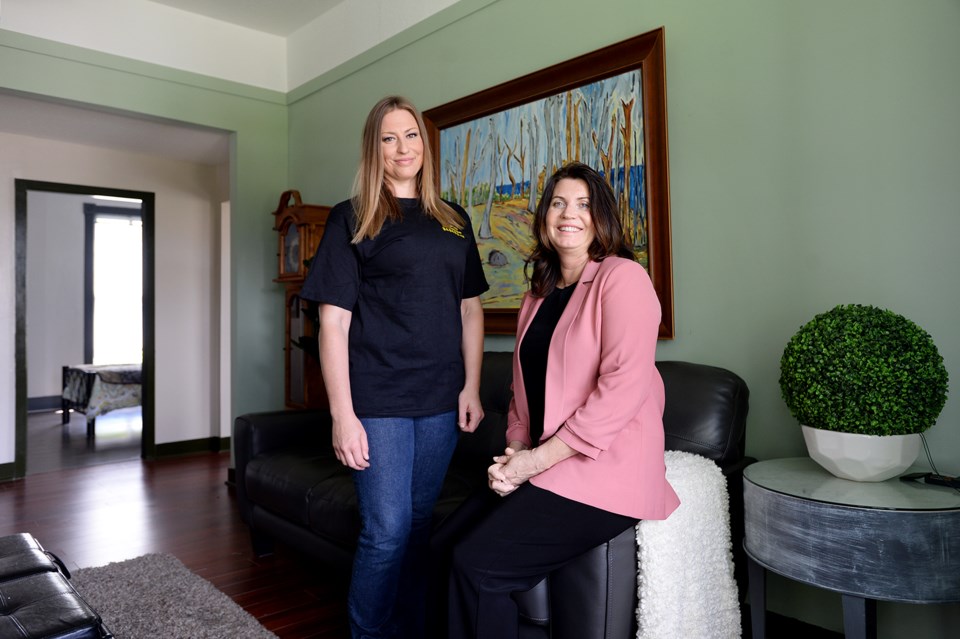A new program aims to fill a gap in care for women striving to stay clean and sober.
Westminster House, which operates recovery programs for women in the Brow of the Hill neighbourhood, applied for a temporary-use permit that would allow it to operate a residential recovery program for up to eight women at 705 Queens Ave. The new program aims to help bridge the gap between primary residential care treatment and independent living.
Christal Coughlin has been clean and sober for almost five years, since seeking treatment at Westminster House. Along with being an alumni of the program, she now works at Westminster House.
“I would have left the treatment centre at around three-and-a-half months clean and sober. I had an incredibly difficult time getting integrated back into working again and being successful,” she said. “I can tell you from firsthand experience that it is enough of a challenge just to fight the cravings to go back to drugs and alcohol, to balance the emotional rollercoaster of early recovery, let alone paying my bills, getting enough nutritious meals.”
Although Coughlin was able to get some meals and support from Westminster House after leaving the treatment centre, she said the time between her initial treatment and the time she celebrated one year of sobriety was extremely challenging. Because Coughlin had limited funds as she was on income assistance, she had to share a one-bedroom property with someone she went through treatment with and had to go to the food bank for food.
“There were times when I ate Ichiban noodles every day, where my phone got cut off, where my bills weren’t getting paid. … I believe that’s why a lot of us relapse during that time,” she said. “It’s a big enough job to work on your recovery, let alone all of the things that come with life.”
Coughlin said the program being proposed will fill a “huge gap” in care for women in recovery.
“I really feel this is going to be a good win for everyone,” she told council. “The residents that are going to live there are going to be able to get a meal program, they are going to be able to get work skills. They are going to be held accountable. So it’s a win for them, it’s a win the city because now we have housing where people are being held to a standard – they are not participating in criminal activity, they are not allowed to use drugs and alcohol, they have a curfew at night, they are seeing addictions counsellors.”
At the Dec. 9 opportunity to be heard about the temporary use permit, three other people – two New Westminster residents and a woman who regularly visits a friend near Westminster House’s current facility – told council they strongly support the proposal.
“We have to show that we live in a caring society, that we can be a caring society,” said Shelley Comer. “From an economic point of view, it just makes sense to provide a facility and facilities for people who are coming out of detox, rehab, rather than just throw them out into the big bad world to struggle and then only to have them turn around and go back into rehab again. To have this kind of transition is absolutely vital. It’s cheaper than funding homelessness.”
Council unanimously supported the temporary-use permit, which would be for a three-year period, ending in 2023, with an option for one renewal for a similar period of time.
“In conversations with Westminster House, the reason they were looking at a temporary use permit is because they are looking at consolidating some of their programs at a later point in time in one location,” said John Stark, the city’s supervisor of community planning. “So, this was seen as an appropriate avenue for that period of time, until they consolidate those programs.”



